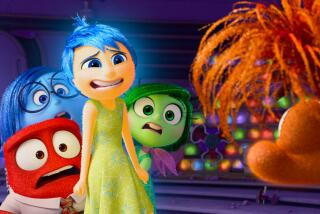‘How to Train Your Dragon 2’ has record opening in China
“How to Train Your Dragon 2” is flying to the top of the Chinese box office.
DreamWorks’ animated sequel earned roughly $26 million in its opening weekend in China, elevating it to the highest-grossing animated film of the year at the international box office.
It is also the highest animated opening of all time in that country, surpassing the popular “Kung Fu Panda” films. The first “Dragon” film, which was released in 2008, grossed roughly $5.5 million in China in its opening weekend.
The studio has been working with its local partners to build an entertainment and cultural district in Shanghai called DreamCenter, expected to open in 2017. It will be home to a 500-seat Imax cinema, multiple performance venues and Oriental DreamWorks, an animation studio.
“China in three or four years will be the No. 1 movie market in the world,” CEO Jeffrey Katzenberg told The Times in May. “I just look at it as a place of opportunity.”
Set five years after the events of 2010’s “How to Train Your Dragon,” the film follows the Viking named Hiccup (voiced by Jay Baruchel) and his dragon Toothless as they navigate the skies to protect their kinds from the power-hungry warlord Drago (Djimon Hounsou).
Though the film hasn’t fared as well with audiences in the U.S. and Canada, grossing roughly $165 million since its June 13 release, the Glendale studio announced Friday that it passed the $500-million mark at the global box office.
Ticket sales for the sequel have also surpassed those of the original 2010 movie, which generated $495 million in revenue, giving DreamWorks some relief after a rocky stretch at the box office that has unnerved investors.
“I think the second one is even better,” Gerard Butler, who voices father Stoick the Vast, said at the film’s press event in June. “It pushes the limits and stakes in so many ways.”
For more news on the entertainment industry, follow me @saba_h
More to Read
From the Oscars to the Emmys.
Get the Envelope newsletter for exclusive awards season coverage, behind-the-scenes stories from the Envelope podcast and columnist Glenn Whipp’s must-read analysis.
You may occasionally receive promotional content from the Los Angeles Times.










